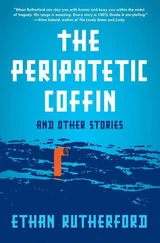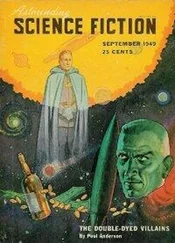There is one such poor man lying with a broken leg and ribs next to Chid. He has told me that he came to Satipur from his village some years ago and has been making a living by selling fruit from a basket. He had always been hoping to earn enough to send for his family, but this has not happened so far and he reckons himself lucky to make enough to feed himself from day to day. He usually sleeps, together with other destitutes, under one of the old gateways leading out of Satipur. That is where he will go back to when his leg and ribs are mended. It is unfortunately taking a long time. What bothers him most is his inability to get up and around — his leg has been strapped up in a contraption — so that he is dependent for his natural functions on the hospital sweepers. At times they come and push a bedpan under him, but since he is not in a position to pay them even the humble sum they exact, they are not too punctual about providing this amenity nor about removing it from under him. Once I came and found him in great distress because he had been left there for several hours. I removed it from under him and went to empty it in a bathroom. The state of these latrines has to be seen to be believed, and when I came out I did feel a bit sick. I tried to hide this so as not to hurt anyone's feelings, but it seems I had already done enough. Everyone looked at me as if I had committed some terrible act of pollution, and the fruit man himself also shrank from me so that when as usual I offered him some of the food I had brought he refused it.
Chid takes no notice of his surroundings at all. In fact, he does his best to shut them out completely. Whenever I visit him, he is lying with his eyes tightly closed and sometimes tears trickle out of them. I have already written to his family to ask for a ticket home for him, and now we are both waiting for it to arrive and for his health to improve sufficiently for him to travel. Meanwhile he wants to know and see nothing; just to lie there and wait.
I still don't know what happened to change him this way.
All he will ever say — the only explanation he gives for his changed feelings towards India — is how he can't stand the smell. I don't even know what's wrong with him physically, what disease it is he has got. I asked Dr. Gopal and he couldn't tell me very clearly either. There is something wrong with Chid's liver and something else with his kidneys and altogether his insides are in a terrible state. It is due, said Dr. Gopal, to bad wrong food and to bad wrong living.
"You see," he tried to explain — busy as he is, he always welcomes English conversation — "this climate does not suit you people too well. And let alone you people, it does not suit even us." He explained to me that not only Westerners but even most Indians suffer from amoebic dysentery. They hardly know it, for they also suffer from many other diseases. He became eloquent as he enumerated all the diseases of India. It was indeed a terrible roll call, and by the time he came to the end of it (if there is art end), he said" I think perhaps God never meant that human beings should live in such a place."
Here I contradicted him, and we had a discussion on this theme in English. He has already told me that, while at medical college, he was a member of the Debating Society and distinguished himself at several inter-University debates. He is indeed skilled at spicing truth with humour, and this is how he concluded our discussion:
"Let us admit for the sake of our argument that we Indians are fit to live here — where else are we fit for?" he asked, leaving a pause for me to laugh in. "But no one else," he said. "None of you. You know in the bad old days you had your Clubs and they were reserved for British only? Well now it is like this that we have our germs and we have reserved these for ourselves only. For Indians only! Keep out!" He threw himself back in his chair to laugh and was still laughing as he turned to jab a needle into an emaciated arm that was held out to him.
Of course to some extent I have to admit he is right: certainly as far as Chid is concerned. Obviously Chid's body is not made to live the life of an Indian holy man. And it is not only physically that Chid is out of action, but in other ways spiritually — too. Do the doctor's strictures apply to the European soul as well as our bodies? I don't want to admit it; I don't want it to be so. There have been people in the past who stayed on here of their own free will. After the Mutiny an anonymous Englishman continued to live all by himself outside the gates of Lucknow, doing religious penance. Another anonymous Englishman was seen for years moving around the bazaars of Multan dressed up as an Afghan horse dealer (no one ever discovered who he was or where he came from, and eventually he was found murdered). And what about the woman missionary I had met on my first night in Bombay? She said she had been in India for thirty years and was prepared to die here if called upon to do so. Yes, and what about Olivia? It seems ludicrous to bracket her with religious seekers, adventurers, and Christian missionaries: yet, like them, she stayed.
I still don't think there was anything very special about Olivia; I mean, that she started off with any very special qualities. When she first came here, she may really have been what she seemed; a pretty young woman, rather vain, pleasure-seeking, a little petulant. Yet to have done what she did — and then to have stuck to it all her life long — she couldn't have remained the same person she had been. But there is no record of what she became later, neither in our family nor anywhere else as far as I know. More and more I want to find out; but I suppose the only way I can is to do the same she did — that is, stay on.
1923
The landscape which, a few weeks earlier, had been blotted out by dust was now hazy with moisture. The view from Harry's window was shrouded by clouds so that everything was seen as through tears that did not fall. The resulting air of sadness matched Harry's mood.
He told Olivia "I had a long talk with him yesterday. I told him I wanted to go home, that I had to… And he agreed. He understood completely. He said he'd make all the arrangements, I was to travel first class, everything must be — tiptop."
Olivia smiled: "I can hear him say that."
"Yes." Harry too smiled through his sadness. "And he made me a declaration."
"I think I can hear that too."
"Yes you can. Of course it's always the same — but Olivia it's always true! Don't you feel that? That when he holds his heart the way he does it's because he really means it?… He talked about you too. Oh don't think I feel bad about anything. Good Lord, what sort of a person would I be then, what sort of a friend? I wouldn't be — worthy of him, would I."
Olivia said "Where is he?"
"In Indore. Yesterday he heard from Simla — they are threatening an enquiry and he sat up all night composing telegrams and this morning he drove off to Indore to consult his lawyers."
"Is it true, Harry? Is he involved with them?"
"Goodness knows. As far as I'm concerned, he's always right and they're wrong. I hate them. They're the sort of people who've made life hell for me ever since I can remember. At school and everywhere. Well as long as they stick to bullying me — but when I see them doing it to him and here — no that's unbearable. And he won't bear it. They'll find out. You should have heard him last night. Wait till my son is born, he said; then they'll laugh from the other side of their mouths. "
"He said that?"
She turned from the window and stared at him so that he knew at once that he had said too much.
"What else did he say?" she asked. "No now you have to tell me. I have to hear."
"You know how often he says things he doesn't mean.
Читать дальше












